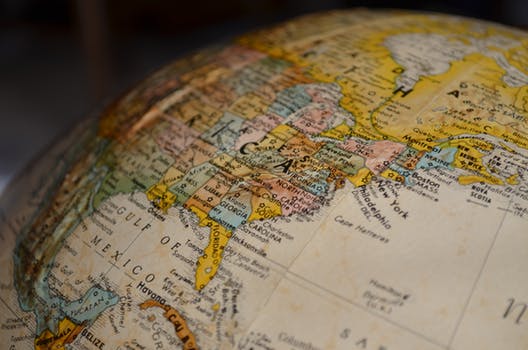
PRELUDE
In the age in which we live, in 2018 in the 21st century, we see countries in the world evolving which seem to be becoming increasingly interconnected.
Of course trade plays an important role, but the rise of the internet at the end of the last century and the new social media via the cloud are undeniable factors that contribute to this development.
Old globally operating institutions, such as the United Nations, the International Court of Justice and the World Trade Organization are in fact the forerunners of what is now seen as globalism.
The Court of Human Rights is an example of a more recent stimulus to current globalism.
Globalism, however, becomes particularly visible in the various trade agreements such as the NAFTA treaty between the USA, Canada and Mexico, the agreement between Canada and the EU and the soon to be concluded TPP treaty between eleven countries, including Canada, Australia, Japan. and other Asian countries.
However, all these global developments evoke protest and resistance in many countries.
Many people in certain areas feel disadvantaged, particularly because of the loss of work and the emergence of a certain poverty which they have lapsed into, including a high degree of insecurity and feeling unsafe.
The guilty party for these disadvantaged groups is soon to be found.
The perpetrator, the cause of their problems, can be found in particular in all those trade agreements with other countries.
They take the bread from the mouths of those people who were doing so well in the past.
Mostly cheaper labor in other countries and, how it could be otherwise, the increased migration of foreign people, is a sensitive nerve of these anti-globalists.
This is a worrying development, especially since this is grist to the mill of extreme thinkers and parties who increasingly find a lot of support among these so-called deprived groups of people.
In response to this a new national awareness is emerging in a considerable number of countries.
The USA, Hungary, Poland, Austria are good examples, but also in Germany, France and other countries within Europe these forces are present to a very large extent.
The Brexit is in fact a consequence of this extreme nationalist way of thinking.
The consequences are probably unthinkable for the UK.
All in all this globalism on the one hand and nationalism on the other is apparently the cause of a lot of sweat and battles for priority in many countries.
Unfortunately this is also accompanied by the necessary riots and the deterioration of feeling safe and secure.
In this way many countries and its institutions are being eroded from the inside.
But larger partnerships, such as the European Union and NATO, are also seriously threatened by these influences with all the consequences that this entails; acquired liberties within the EU, but also in the USA and an increasing degree of feeling unsafe in the world are just examples that crystallise towards the current time we live in.
A world in confusion where people sometimes desperately look for a new guidance.
All kinds of defense mechanisms are raised against the influences of globalism: Christianity is in danger; Restrict other religions; Everything was better in the past; Get rid of the foreigners; Bring back the guilder and o yes there was more safety on the streets as well.
This is why the writer of this op-ed shines his (christian-inspired) light on this issue in the hope that this will be helpful to the readers and perhaps helps others to look with new eyes at the phenomenon of a changing world.
We are pleased to receive your response through our contact form.

